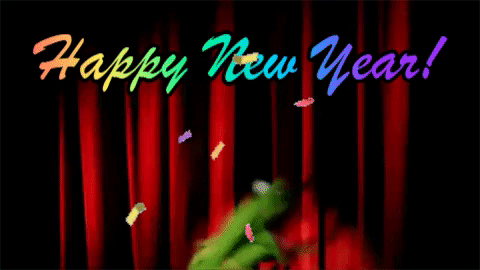#127: On my bookshelf, new rules of writing, B2B resolutions + peeves, the end of normal?
Happy New Year!

In the first 2020 edition of the World's Best Newsletter:
1. B2B Marketing Resolutions
2. New rules on writing
3. $50 - $150B lost to ad fraud
4. On my bookshelf via Hubspot
5. Why the 2010s were the end of normal - NYTimes
6. Marketing pet peeves for 2019
7. Quote of the week: Responsibility and change
Let's do it.
1. B2B Marketing Resolutions
Demand Gen Report asked a bunch of us for our resolutions and predictions in 2020. Read them all here.
2. New rules on writing
This NYTimes piece "We Learned to Write the Way We Talk" reveals the impact of, well, the Internet on the way we communicate. It's less about formal writing rules, and more about communicating feeling, empathy, emotion, and understanding.
"We’ve been taught the lie that homogeneity leads to understanding, when in truth, understanding comes from better appreciating variety."
and
"Having emotionally real conversations takes vulnerability. In a world where so many of us have been taught to write according to a list of rules, disregarding them is a way of extending trust."
3. $50 - $150B lost to ad fraud
A harrowing adtech reminder from The Correspondent: Five years from now, between $50bn and $150bn will be lost to fraud annually (World Federation of Advertisers).
"The digital advertising industry, worth hundreds of billions of dollars annually, is often plagued by widespread fraud, dubious metrics, and adblockers. Turns out that in a world of maths and numbers, measuring anything accurately is almost impossible."
4. On my bookshelf via Hubspot
I was grateful for the chance to feature three great reads by Cecile Richards, Kate O'Neill and Carlos Hidalgo in this mini series with Hubspot INBOUND, but laughing at the "self made visionary" bit -- whatever, it's worth getting word out about these recommendations:
Make Trouble: Standing Up, Speaking Out, and Finding the Courage to Lead--My Life Story (Cecile Richards)
Tech Humanist: How You Can Make Technology Better for Business and Better for Humans (Kate O'Neill)
The UnAmerican Dream: Finding Personal and Professional Happiness Establishing Work-Life Boundaries (Carlos Hidalgo)
5. Why the 2010s were the end of normal - NYTimes
While the title is a bit hyperbolic (what is "normal?" "Normal" changes constantly, especially across a decade, the only thing "normal" in this world is the frenetic pace of change) I do appreciate the reminder of where we've ended up on this end of the last decade. Full article here.
Some highlights:
...our partisan identities have merged with our racial, religious, geographic, ideological, and cultural identities - Ezra Klein
We will justify almost anything or anyone so long as it helps our side, and the result is a politics devoid of guardrails, standards, persuasion, or accountability
Social media, which came into its own in the 2010s, accelerated the filter bubble effect further, as algorithms designed to maximize user “engagement” (& therefore maximize ad revenues) fed people customized data & ads that tended to reinforce their existing beliefs / interests.
This is why Republicans/Democrats, conservatives/liberals, have trouble even agreeing upon shared facts — a development that has undermined trust between different groups, fueled incivility + sped up the niche-ification of culture that began years ago with cable tv + internet.
Platforms like Facebook Twitter and Instagram have enabled politicians (as well as advertisers, Russian agents and alt-right conspiracy theorists) to circumvent gatekeepers like the mainstream media and reach out directly to voters.
“Influencers” replaced experts, scientists and scholars; memes and misinformation started to displace facts.
As the news cycle spun faster and faster, our brains struggled to cope with the flood of data and distraction that endlessly spilled from our phones.
And in an era of data overload and short attention spans, it’s not the most reliable, trustworthy material that goes viral — it’s the loudest voices, the angriest, most outrageous posts that get clicked and shared.
Read the full piece.
6. Marketing pet peeves for 2019
SmarterCX asked us what marketing pet peeves defined 2019 -- it's a great list and I am glad for the chance to contribute! My mini rant was inspired by my friends at Qualified Digital who I'm collaborating with on a new resource on personalization, and Kara Swisher (who gave a controversially bare-boned but urgent talk at the MarketingProfs B2B Forum):
My biggest marketing pet peeve is disrespecting buyers’ data. I heard Kara Swisher speak [about] this last week, and she implored tech companies and marketers to find new ways to engage with customers that did not require them to pillage our data. We ask for buyers’ data (explicitly such as their email/phone and implicitly e.g. their behavior on our sites and campaigns). But, unless we are giving them back something of real value—personalized, relevant, insightful, etc., we are not being responsible stewards of that information, and actually risking creating a poor customer experience.
7. Quote of the week: Responsibility and change
One of my 2020 mantras comes from Grace Lee Boggs:
I've come to believe that you cannot change any society unless you take responsibility for it, unless you see yourself as belonging to it and responsible for changing it.
Buckle up, friends. 2020 is going to be wild. Thanks for being part of it with me.
Have a great weekend,
Katie
Website | LinkedIn | Twitter
>> Share The World's Best Newsletter on Twitter, or LinkedIn <<
Planning an event in 2020? Book me to speak or emcee.


